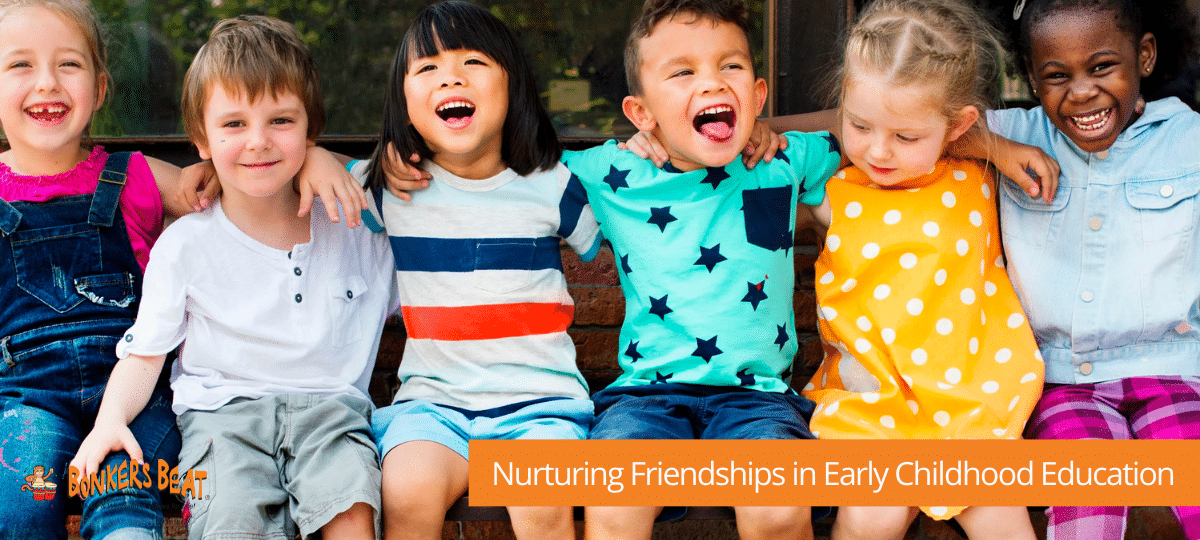Friendships are a vital aspect of a child’s early years, laying the foundation for social and emotional development, self-esteem, and overall well being.
As we approach World Friendship Day on 30 July it’s important to recognise the immense value of friendships in early childhood education.
Let’s delve into why friendships matter, and discover practical tips for educators and parents to nurture these important connections.
The Power of Friendships for Children’s Development
Friendships play a crucial role in children’s social and emotional development. Through interactions with peers, children learn valuable social skills such as empathy, cooperation, and problem-solving.
Friendships provide a safe space for self-expression, where children can practise sharing their thoughts, emotions and ideas. These meaningful connections foster a sense of belonging, acceptance and support, leading to improved self-esteem and overall wellbeing.
Benefits of Friendships in Early Childhood Education
Beyond social and emotional development, friendships offer numerous benefits for children.
Friendships enhance communication skills, language development and cognitive abilities as children engage in conversations, negotiate, and engage in imaginative play.
Friendships also promote a positive attitude towards learning, as children collaborate and learn from one another. Through friendships children can gain a sense of security and comfort, helping them navigate challenges and transitions more smoothly.
Nurturing Friendships: Tips for Educators and Parents
- Create opportunities for social interactions: Plan activities that encourage collaboration and teamwork, such as group projects, circle time discussions, or cooperative games. Provide ample time for free play to allow children to form friendships naturally.
- Teach empathy and conflict resolution: Help children develop empathy by discussing feelings and encouraging perspective-taking. Teach problem-solving skills to help them resolve conflicts and navigate social situations positively.
- Foster an inclusive environment: Promote inclusivity by celebrating diversity and encouraging friendships across different backgrounds, cultures, and abilities.
- Model positive social behaviours: Educators and parents play a crucial role as role models. Demonstrate kindness, respect and positive communication in your interactions with children and others.
- Support social skills development: Teach children essential social skills such as sharing, taking turns, active listening, and expressing emotions appropriately. Provide guidance and gentle reminders when needed.
World Friendship Day: Celebrating Connections
On 30 July and every day, let’s celebrate the power of friendships in early childhood education. Take this opportunity as a reminder to encourage children to appreciate and value their friendships, fostering a sense of unity and compassion that will positively impact their lives and the world around them. We might also reach out to our own friends and lean into the special role they hold in life as adults too.
Friendships are an essential part of a child’s early childhood education journey. They contribute to social and emotional development, self-esteem, and various other benefits. By nurturing friendships through intentional efforts and providing a supportive environment, we can empower children with valuable skills and experiences that will last a lifetime.
Join us in celebrating Friendship Day by incorporating “One Country” into your festivities, classrooms, or home activities. Together, we can create a ripple effect of kindness, compassion, and lifelong friendships.
Click here to explore the wonders of “One Country”. https://www.bonkersbeat.com/product/one-country/





